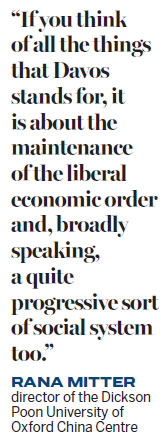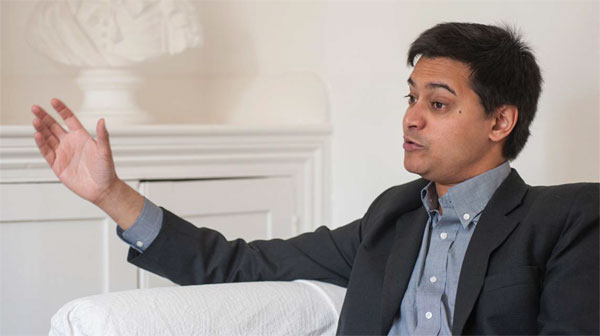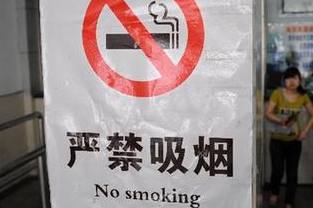Calm voice emerges from global turmoil

Academic believes Chinese president could be a stable influence at Davos as world events bring waves of uncertainty
Rana Mitter believes President Xi Jinping could offer a voice for stability in an uncertain world at the World Economic Forum meeting in Davos.
The director of the Dickson Poon University of Oxford China Centre says Xi's attendance at the summit - the first by a Chinese head of state - could signal the global order does not need to change, despite Donald Trump assuming office on Jan 20.
"I think (Xi's attendance) could be interpreted as a vote of confidence by China in the current global order, which in 2017, may be sorely needed. Clearly last year was a bruising year," he says.
| Rana Mitter, director of the Dickson Poon University of Oxford China Centre, says President Xi Jinping's attendance at the World Economic Forum in Davos this year could signal that the global order does not need to change, despite Donald Trump assuming office on Jan 20. Nick J.B. Moore / For China Daily |
"If you think of all the things that Davos stands for, it is about the maintenance of the liberal economic order and, broadly speaking, a quite progressive sort of social system too."
President Xi's decision to be at this year's summit comes after the attendance of Vice-President Li Yuanchao last year and Premier Li Keqiang in 2015.
China has also held its own Summer Davos annually since 2007, under the auspices of the WEF, alternating between host cities Tianjin and Dalian.
Mitter, who was speaking in the front room of his Oxford home, believes that, given China's engagement with Davos, Xi's keynote address to the forum is likely to carry extra significance.
The Chinese president is set to reaffirm his commitment to globalization and free trade at the meeting.
"I think a lot of people will be listening very carefully to what he has to say. It is likely to make more of a splash this year than it would have done a year ago. The world 12 months ago was really very different in terms of what was happening and any likely expectations."
Davos has come to symbolize the global elite, bringing together politicians, heads of think tanks and large corporations, leading economists, academics and the media.
It is this elite that has come under fire from populist movements that have led to the election of Donald Trump in the US and the UK's Brexit decision.
Mitter, 47 and regarded as one of the leading China experts in the West, believes voters should not fool themselves into thinking they are being offered anything other than a different form of elite.

"What is mostly happening is that one elite is being replaced by another. Donald Trump has articulated the voices of many people who are clearly desperately unhappy with their current economic situation but it is not as if he, himself, is a horny-handed son of toil who has worked his way up through the coal mines."
"An awful lot of the anti-elites, who are themselves elites of a different sort, are offering supposed solutions that have very little substance to them whatsoever."
One of the main discussion points at Davos is the risk of returning to a 1930s-style era of protectionism.
President-elect Trump threatened during his election campaign to impose a 45 percent import tariff on Chinese goods
"This strikes me as highly unlikely in practice," says Mitter.
"China, famously, and the US are in the World Trade Organization, which exists precisely to try and prevent this sort of trade war escalating. The idea that the US and China can simply launch a trade war against each other without outside intervention does not reflect the reality of the situation."
"There are an awful lot of other actors who would have something to say about this, including the European Union, Canada, Australia and the UK, once it leaves the EU of course."
Climate change is also likely to be high on the agenda at Davos, with the hard-won agreement drawn up at the 2015 Paris summit, which both China and the US ratified, seemingly under threat from the new US administration.
"He hasn't actually said he will abandon it. Like many other things, when you peruse the grammar very carefully, he has allowed himself more wriggle room than is immediately clear from the rhetoric," adds Mitter.
"It wouldn't actually be that easy to simply dump the climate change deal because, by doing so, he would be dumping every single one of America's allies, who have also signed up for it. He will be aware there will be a price to pay for that as well."
The future of the European Union will be another debating point at the Swiss ski resort.
The UK is set to invoke Article 50 at the end of March, which will trigger the start of Brexit negotiations.
The French have their general election in May, with Front National leader Marine Le Pen likely to get into the final round of voting and with a chance of winning the presidency.
"If Le Pen does win, that will put a bomb under the structures of the European Union. I think it would put an end to the great European project, at least in its current form," says Mitter.
The academic says that even if conservative candidate Francois Fillon is elected in France and Angela Merkel is returned in Germany, the EU still faces major uphill challenges.
"It still has the euro crisis, it still has the Italian banks problem and it still has relatively sluggish growth. Its structural problems will not have been resolved."
Mitter, the son of academics originally from West Bengal, studied Chinese at Cambridge and was a Kennedy scholar at Harvard before embarking on an academic career.
He has written a number of books on China, including the highly acclaimed China's War With Japan, 1937-45: The Struggle for Survival, which has been translated into Chinese.
He combines being director of the Oxford University China Centre, which he is contracted to until 2019, with being a presenter of the BBC Radio 3 arts program Free Thinking.
Mitter, who attended Davos last year as a speaker, believes another of the major talking points there will be the future of US foreign policy under the new administration.
"A pre-Trump America, or any other president, would be concerned about things such as security in Europe. I suspect there is at least some part of the Trump administration that really doesn't regard that as a first level American priority," he says.
The future of trade within Asia itself will also be debated. The incoming president has already announced he will withdraw the US from the Trans-Pacific Partnership.
Some have suggested that China may want to form its own alternative bloc, possibly built around RCEP (Regional Comprehensive Economic Partnership), an ASEAN (Association of Southeast Asian Nations) initiative.
Mitter, however, believes that President Xi would much prefer to form a trading bloc that included the United States rather than going it alone
"I'm totally convinced by the idea that China would much rather have the US inside, whatever structure it is."
The academic maintains that Xi is likely to provide a reassuring presence at Davos in a world of change. Klaus Schwab, founder and executive chairman of the Geneva-based international organization, has already said the president will outline his country's evolving role in the new global structure.
"Chinese politics is probably likely to be much more predictable and stable during 2017, certainly compared to an untried US President, the start of Brexit negotiations and the structural problems of the European Union. All of these are the political unknowns that will begin to unfold over the next 12 months," says Mitter.
andrewmoody@chinadaily.com.cn
(China Daily Africa Weekly 01/13/2017 page7)
Today's Top News
- The farmer, the snake and Japan's memory hole
- Crossing a milestone in the journey called Sinology
- China-Russia media forum held in Beijing
- Where mobility will drive China and the West
- HK community strongly supports Lai's conviction
- Japan paying high price for PM's rhetoric































